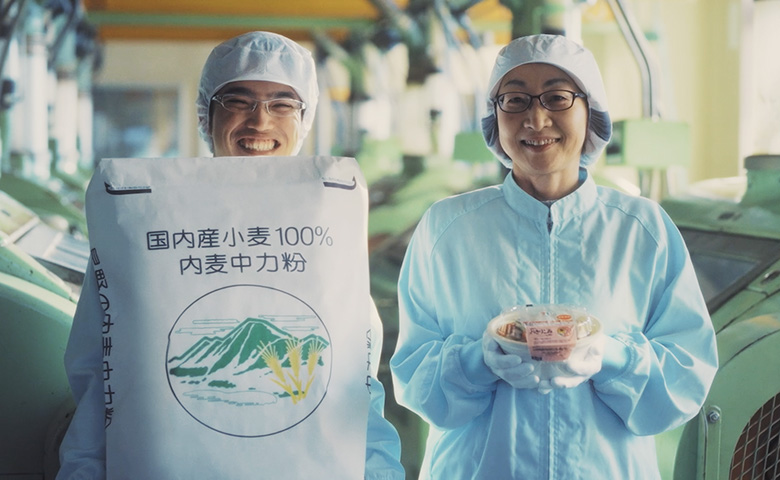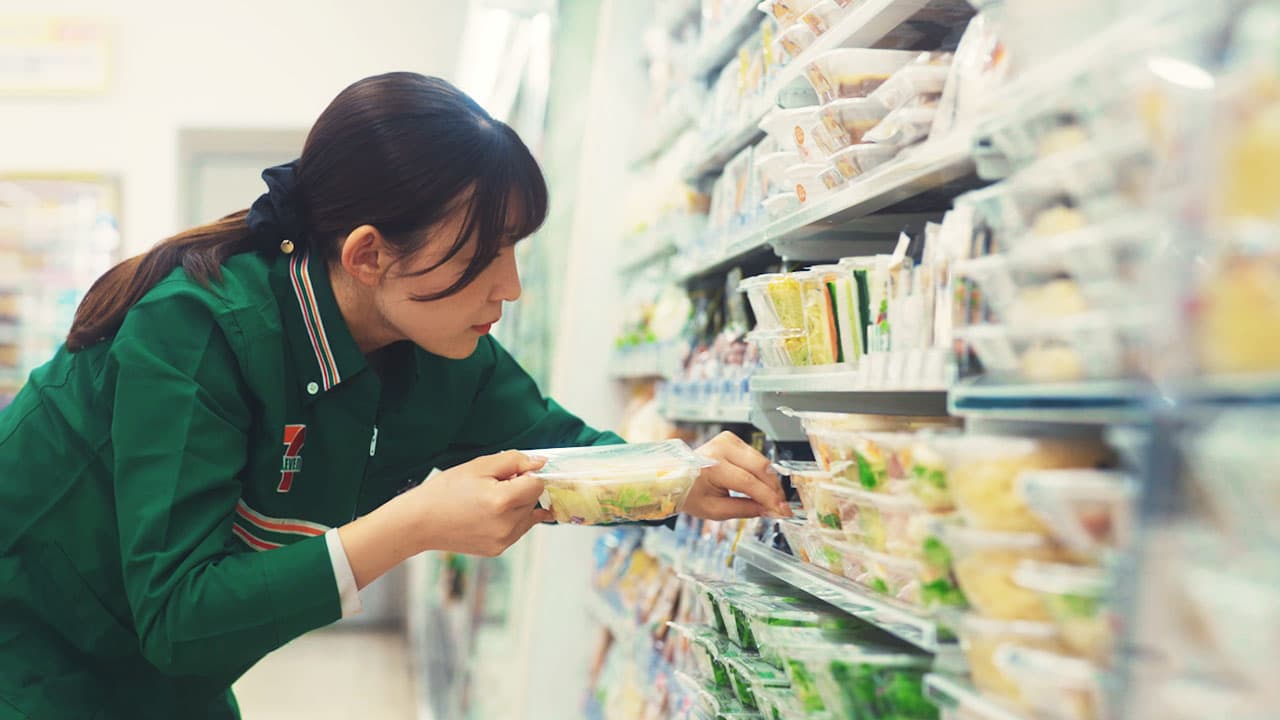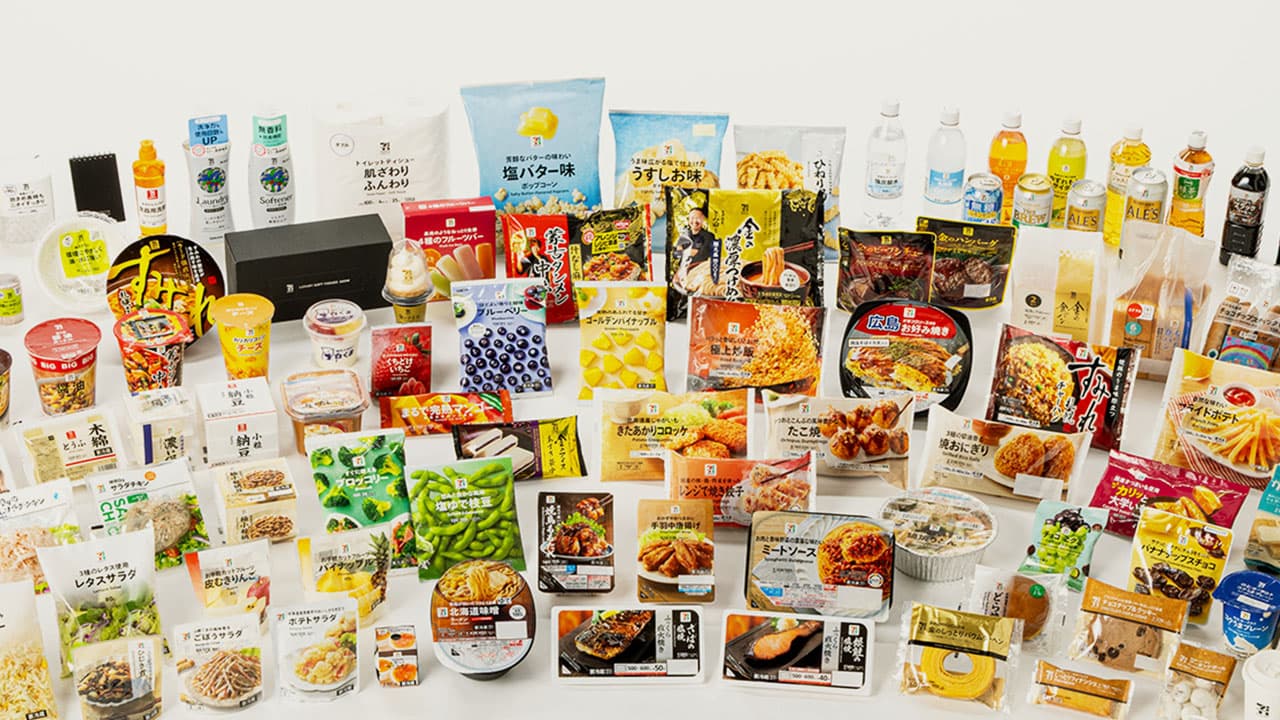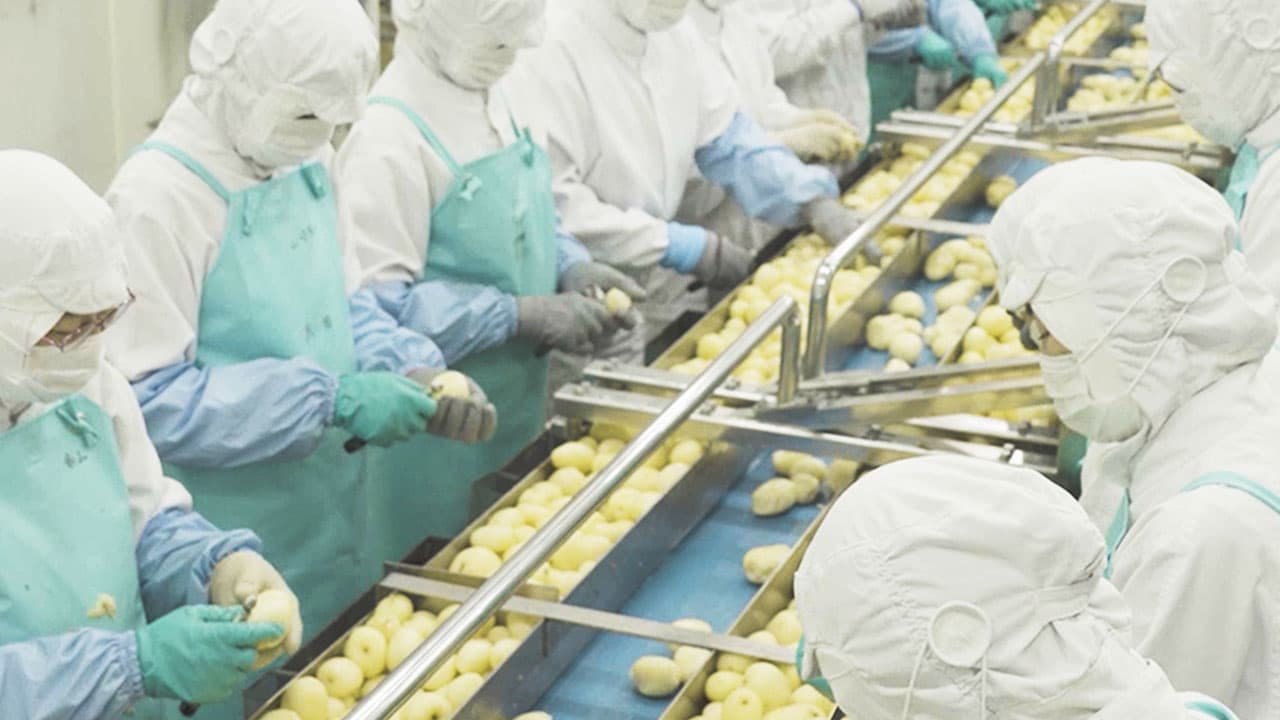Table of contents
Crafting Innovative Tastes Through Dedicated Community Engagement
Japan, a lush island nation, boasts diverse food cultures. Even with something as simple as udon noodles, regional distinctions can be seen in noodle thickness, cooking methods, and the preparation of the broth. Since its early days, SEJ has been committed to understanding customer needs and revitalizing local economies by developing original fresh foods that reflect the tastes and preferences of each region. In regions particularly distant from Tokyo, such as Hokkaido and Kyushu, where transporting raw materials poses significant challenges, localized product development led by Regional merchandisers (MDs) was prioritized. With the establishment of a local production and consumption model, we now operate across ten regional divisions.
“There are two reasons why SEJ can develop and reliably supply localized products on a scale of over 20,000 stores nationwide: the in-depth onsite dialogue by Regional MDs, and the unique logistics network based on our dominant strategy,” says Washino confidently. Regional MDs in each area work closely with producers and manufacturers to preserve and promote local flavors, building trust that goes beyond business. As a result of these efforts over many years, localized products* now constitute approximately 30% of our fresh foods. These products are cherished by many customers as easily accessible local delicacies.
*Products that use high-quality local ingredients, tailored to regional tastes, and commercialize traditional dishes or locally significant menus.
In the Tohoku region, for example, we have long sourced local wakame seaweed, which is celebrated for its rich flavor and texture. We worked closely with local manufacturers to develop products like rice balls and salads that gained a devoted following. But in 2011, the producers were hit by the Great East Japan Earthquake. SEJ immediately sent relief supplies and committed to long-term sourcing partnerships to help restore and revitalize the local economy. This allowed the producers to quickly resume operations and continue working hand in hand with SEJ to this day, creating delicious new products.
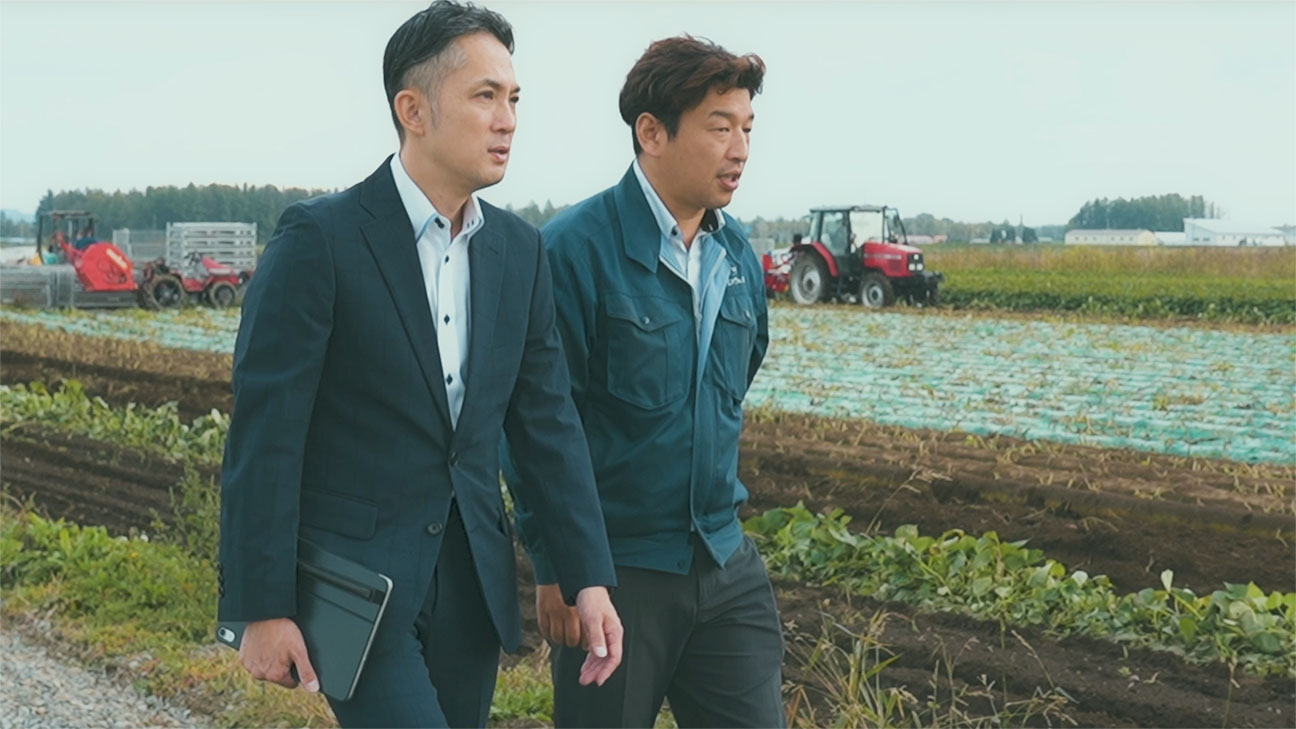
Addressing Social Issues to Unlock Regional Revitalization
One milestone that accelerated efforts in collaborating local communities was the signing of “Regional Comprehensive Partnership Agreements” with local governments since 2004. As of 2024, SEJ has agreements with more than 240 entities nationwide, engaging collaboratively with each entity to actively gather regional information and address social issues.
“The mission of Regional MDs in localized products is to continuously source raw materials and develop these products as regionally rooted staples. Our medium- to long-term perspective allows for detailed attention that accelerates unique innovation specific to each area,” remarks Washino. An example of this is the use of wheat from Gunma Prefecture, which began in 2002 at about 50 tons, and expanded to 720 tons now, paving the way for domestically produced udon noodles. By building stable, long-term partnerships with local suppliers, SEJ also contributes to nurturing the next generation of producers.
In parts of Saitama Prefecture adjacent to Tokyo, “Suttate Udon” has long been cherished as a nutritious, easy-to-make, traditional noodle dish during busy periods of farm work. This dish, eaten by dipping udon noodles in a sauce made from ground sesame and miso, is quite different in both taste and appearance from the udon commonly found in Tokyo. SEJ successfully commercialized this unique local flavor at a high standard of quality, working closely with local governments through discussions and tasting sessions.
Furthermore, collaboration with local governments extends beyond primary industries. It encompasses diverse fields, such as childcare support and the enhancement of community support systems in times of natural disasters. In depopulated regions with many elderly residents who find it difficult to go out, we offer mobile shopping services. These address the urgent need for essential goods while also bringing the joy of shopping.

Sustaining Food Culture for Tomorrow, Spreading Collaborative Expertise Globally
“The greatest challenge in community coexistence is finding ways to deliver added value to local communities, including through our products. We prioritize meeting immediate customer needs while genuinely engaging with each producer and continuing to support them responsibly,” emphasizes Washino. By enabling collaborations even with small-scale producers through a framework that starts with quantities manageable by about 50 stores, SEJ aims to expand the network of partners. This approach broadens the partner network, while advancing towards the goal of increasing the local production and consumption ratio of raw materials to 30% by 2030.
Some producers, despite growing high-quality vegetables, struggle to find buyers for items considered non-standard by supermarkets. SEJ actively procures these items for use in ready-to-eat meals, reducing food loss in the process. Additionally, producers often share cooking methods that enhance these ingredients, leading to product commercialization. These mutually beneficial relationships foster the creation of innovative products.
Looking ahead, beyond connecting local food cultures across Japan to future generations, we envision extending the development methods for localized products that we have refined domestically to the global stage. By crafting and delivering products that meet evolving needs and respond to societal changes in countries and regions around the world, we aim to contribute to local community growth and become an even more valued presence in our customers' daily lives.
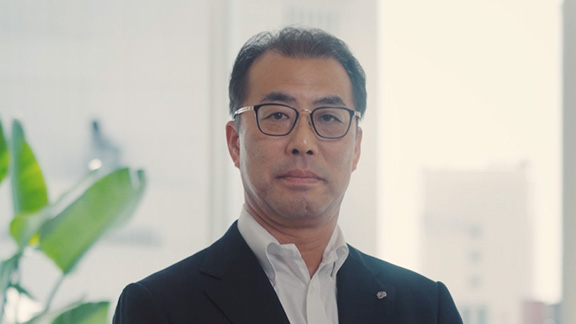
Hiroaki Washino
General Manager,
Regional Merchandising Management Department
Merchandising Division
SEVEN-ELEVEN JAPAN CO., LTD.
Hiroaki Washino
*Titles as of August 2025
* This article is based on data as of June 16, 2025.


